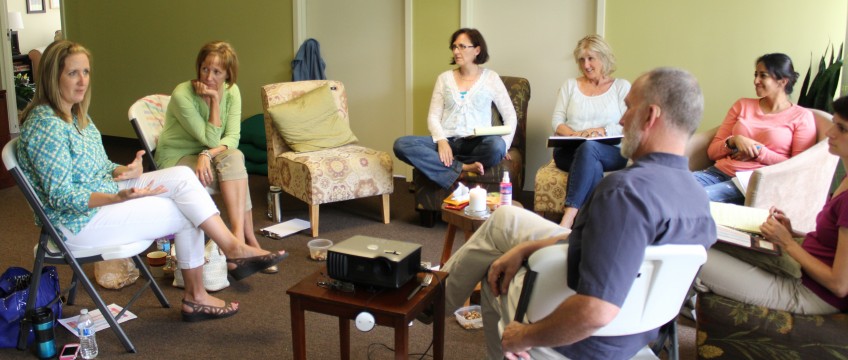The origins of JustConflict as a discipline do not go back to the intention of deepening spiritual awareness. It arose out of a curriculum I designed for working with abusive men. It was only as I clarified the practices and applied them to a broader audience that I discovered their potential as a contemplative practice.
We normally think of contemplation as closely considering something. A contemplative practice is something we do over and over in which we focus on a sound or thought or object or our breath or on a sensation or collectively on a chant or text. We normally do this in solitude or in the context of a small and safe community.
JustConflict starts in the most opposite of places. The object of our attention is the thing that bothers us the most in the relationship that is, at times, the most trying. One member of the Living School recently named the mother of her step-son as one of her teachers. This was not because she is so calm and wise but because she has the power to cause so much distress in her family and pain in her heart.
Our starting point is with a persistent pattern of conflict in a significant relationship. These are the places that have the greatest potential for our transformation. This is the place where I most want things to change. But it is also not a place of calm but of turmoil. This is not a place of clarity but of confusion. This is not me at my best but at my worst.
How then can this be a contemplative practice, even a form of contemplative prayer? Let us consider what contemplation is more from the perspective of what it does than what it looks like. What is the impact of contemplation?
It helps us know what truly is. It grounds us in reality. It connects us to ourselves in a manner that allows us to be more fully connected to all that is around us. It may be a kind of conversation in which we experience conversion to a more fully true and complete expression of who we are, who we are created to be.
This conversation is one which we try to have with the fullest and purest expression of divine love. But the energy and the intelligence which gives rise to all that is is present in all that is. So we can have that conversation with anyone or anything at any time. And if the goal of this conversation is conversion, then the best time and context in which to have it is in the one where I most want things to be different. It is when I am the most raw, on my last nerve, most wounded, vulnerable, frantic, and confounded.
At the Retreat: The Practice of Presence we will be sitting in silence, and chanting, and focusing on movement and breath. But we will also each select a persistent pattern of conflict in a significant relationship and discover a way of being that will reliably create what we need such that we don’t require or expect that others will change but such that we will be creating what they need as well.


